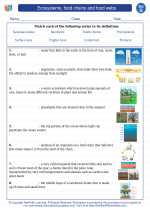Ecosystems, food chains and food webs -> interdependence
Interdependence
Interdependence is the concept that all living things depend on each other for survival. This concept is a fundamental principle in ecology and is crucial for understanding how ecosystems function.
Key Points to Understand Interdependence
- Relationships: All living organisms are interconnected through various relationships. These relationships can be categorized as mutualism, commensalism, parasitism, and competition.
- Ecosystems: Interdependence occurs within ecosystems, where different species rely on one another for resources such as food, shelter, and protection.
- Food Chains and Webs: Interdependence is evident in food chains and webs, where each organism is part of a complex network of energy flow.
- Human Impact: Human activities can disrupt interdependence in ecosystems through habitat destruction, pollution, and overexploitation of resources.
Study Guide
1. Define Interdependence
Interdependence is the mutual reliance between two or more groups. In ecology, it refers to the relationships between living organisms and their environments, where each organism depends on others for survival.
2. Types of Relationships
Explain the different types of relationships in ecology, including mutualism, commensalism, parasitism, and competition. Provide examples of each type of relationship.
3. Examples of Interdependence
Describe specific examples of interdependence in ecosystems, such as the relationship between pollinators and flowering plants, predator-prey interactions, and the role of decomposers in nutrient cycling.
4. Impact of Human Activities
Discuss how human activities can disrupt interdependence in ecosystems. Provide examples of habitat destruction, pollution, and overexploitation of resources, and their effects on interdependent relationships.
5. Food Chains and Webs
Explain the concept of food chains and webs, and how they illustrate the interdependence of organisms within an ecosystem. Provide examples of specific food chains and webs to demonstrate interdependence.
6. Case Studies
Research and analyze case studies of ecological systems that demonstrate the importance of interdependence. Discuss how disruptions in interdependent relationships can lead to ecosystem instability and biodiversity loss.
By understanding the concept of interdependence and its implications for ecosystems, we can appreciate the intricate connections that sustain life on Earth and work towards preserving these relationships for future generations.
.◂Science Worksheets and Study Guides Seventh Grade. Ecosystems, food chains and food webs
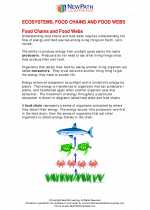
 Activity Lesson
Activity Lesson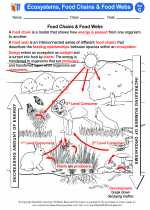
 Worksheet/Answer key
Worksheet/Answer key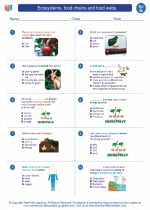
 Worksheet/Answer key
Worksheet/Answer key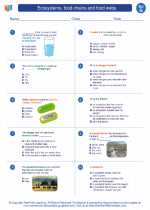
 Worksheet/Answer key
Worksheet/Answer key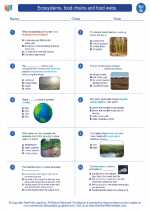
 Vocabulary/Answer key
Vocabulary/Answer key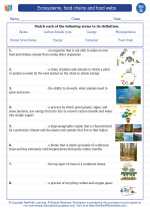
 Vocabulary/Answer key
Vocabulary/Answer key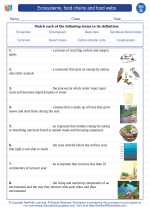
 Vocabulary/Answer key
Vocabulary/Answer key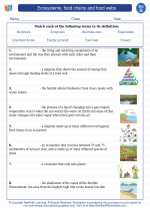
 Vocabulary/Answer key
Vocabulary/Answer key
 Vocabulary/Answer key
Vocabulary/Answer key